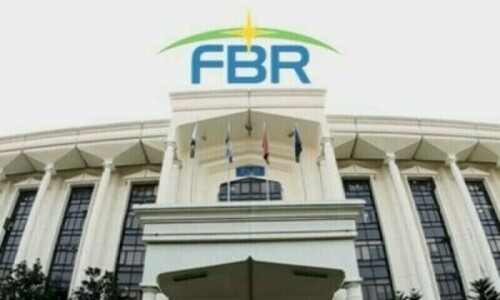KARACHI: As the government reached a Staff-Level Agreement for the last tranche under the IMF’s Stand-By Arrangement, the Pakistan Business Council (PBC) has acknowledged progress on securing the country’s solvency but signalled concerns on other aspects of key economic reforms.
Also, the government is all set to begin formal discussions for a new larger and longer Extended Fund Facility with the IMF from next month, which with greater fiscal discipline would strengthen lender confidence. The government has declared its intent to maintain a realistic exchange rate. All these steps augur well for the stability of the economy.
Solvency is the ability of a country to meet its long-term debts and other financial obligations.
Other key priorities are to reduce inflation and the policy rate, stem leakages from the fiscal account, and revert to competitive energy tariffs for the productive sector, especially exports. The above priorities require actions like cutting expenditure which looks unclear and uncertain in the near future. However, the formation of committees to restructure the Federal Board of Revenue (FBR) gives a positive signal.
PBC chief executive Ehsan Malik said the government’s plan to institute fiscal discipline by cutting expenses is also not clear. Expenditure control is necessary to manage fiscal deficit and curtail borrowing as it will take some time to raise tax revenue, stem leakages from losses of state-owned enterprises and renegotiate the National Finance Award (NFA).
Sees liquidity improvement with IMF inflows
He fears that the likelihood of the Pakistan Peoples Party’s support for the much-needed privatisation is not certain. Neither is the PPP’s or the provinces’ readiness to renegotiate the NFA. Thus that leaves the challenge of reducing inflation and the cost of borrowing. For rebalancing NFA, political consensus is necessary but it looks uncertain.
An important benefit of fiscal discipline is higher lender confidence, derived from an improved capacity to service lower debts at lower cost, he said.
On energy reforms, Mr Malik’s view was that tariff-led measures were not a sustainable or effective solution. Structural reforms were required to reduce tariffs. These would include privatisation and outsourcing of distribution companies.
He urged the government to re-engage with the IMF for deeper reforms that would lead to competitive tariffs for the productive sector. Without this, there was a high risk of unemployment, loss of export income and tax revenue. He acknowledged that under the present conditions, the outcome of this engagement is uncertain.
Malik said the private sector too is now under acute pressure from high borrowing costs. “Policy rate is not an effective tool to control cost-push inflation, especially as more than half the economy is in the informal sector, which does not avail bank credit,” he added.
Published in Dawn, March 24th, 2024















































Dear visitor, the comments section is undergoing an overhaul and will return soon.